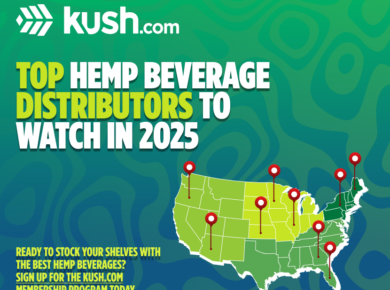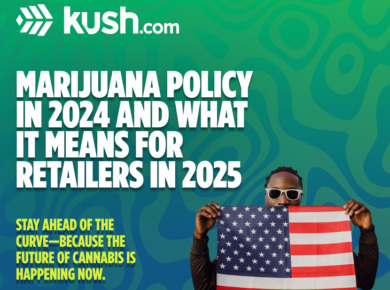Hemp is federally legal. Under the 2018 Farm Bill, any grey area surrounding hemp’s legality has disappeared. Yet, many hemp companies face logistical hurdles preventing them from operating like normal businesses.
Shipping unprocessed hemp remains as one of the chief challenges for hemp companies. As the number of places growing hemp increases and the supply-chains grow and branch, shipping becomes an ever more important and valuable problem to solve.
Under the 2014 Farm Bill, USPS seizures inhibited companies from shipping. In early 2018, a Denver based company successfully sued the USPS to recover a lost shipment of CBD isolate powder. Still, the USPS refused to accept the mailability of hemp. The process was simple.
Work in the Hemp Industry? Create Your Kush.com Account Today >>
Confiscate the hemp shipment, send a scary letter from the Postal Inspectors, and then refuse to followup. Only a significant legal budget could provide any reassurance to companies.
The passage of the 2018 Farm Bill changed everything. USPS finally accepted the mailability of hemp in June of 2019 . Still, businesses struggled to ship their hemp. In particular, unprocessed hemp, usually in flower form exposed companies to seizures from law enforcement at state and local levels. In 2019, a truck driver passing through Idaho faced marijuana trafficking charges for shipping 7000lbs of hemp. Even with the challenges, new compliance procedures and private offerings are increasing the options for legitimate business owners.

The Current State of Hemp
As of 2020, shipping hemp through USPS remains one of the best options. Federal agencies must follow federal law and the law is clear. With the volume of hemp shipments increasing through USPS, private companies are beginning to take notice. UPS, in particular, started a hemp flower shipping pilot program based in Jackson County, Oregon. As a small agricultural community with more hemp plants than people, cities like Medford, OR proved to be an ideal testing ground for developing compliance programs.
Even once a law changes, private companies still must develop internal procedures and programs to ensure no illegal shipments slip through. Unlike the USPS with its own police force (Yes, postal inspectors are federal law enforcement officers), UPS carries the liability of any illicit activities that they would participate in, even unknowingly.
UPS went through an exhaustive research process. UPS flew out its heads of regulated shipping from Atlanta to Medford, Oregon to meet with hemp companies. These UPS executives visited companies like mine to access both the market opportunity and the associated risk. 25 companies were given access to the first major private carrier shipments in July of 2019.
UPS took this major step forward in providing a service neglected by USPS. USPS limits shipments to less than 70lbs. Many private carriers would also offer to rent full truckloads for the hemp industry. The problem was in the middle. Including a pallet of hemp flower in the same truck as non-hemp shipments posed a great challenge and risk for private carriers. If a truck was stopped and a hemp flower packaged was seized, the entire truckload of other non-hemp shipments risked severe delay and even confiscation.
Work in the Hemp Industry? Create Your Kush.com Account Today >>
Now UPS is beginning to expand its program. For UPS, hemp is still a regulated good. In otherwords, you need a license to ship hemp with UPS. An agricultural commodity usually doesn’t require special licensing for shipping but holding a license in hemp is the easiest way to give assurance. Options are continuing to expand as smaller private companies jump on board and hope to capture a piece of the rapidly growing market. LTL shipments are a major step forward for the hemp industry. Limited access continues in this rapidly changing industry.
About the Author

Evan Marshall
CTO/CoFounder, Plain Jane
evan@tryplainjane.com
After graduating from MIT and working for technology startups in San Francisco, Evan sought to bring his technical expertise into the hemp industry. He is building a brand focused on eliminating middlemen in the hemp supply chain to bring affordable CBD flower products directly to consumers. Through a combination of online marketing and working directly with small farms in Southern Oregon, Evan is helping to make hemp flower more accessible to the broader public.



